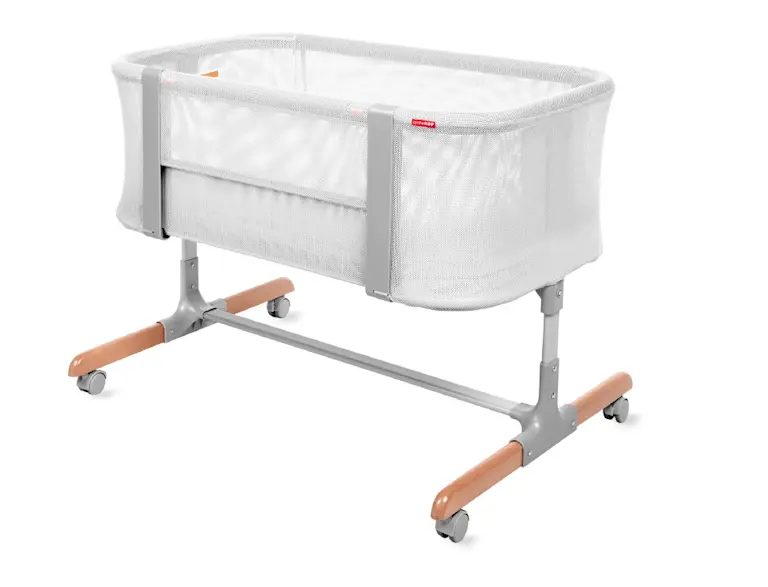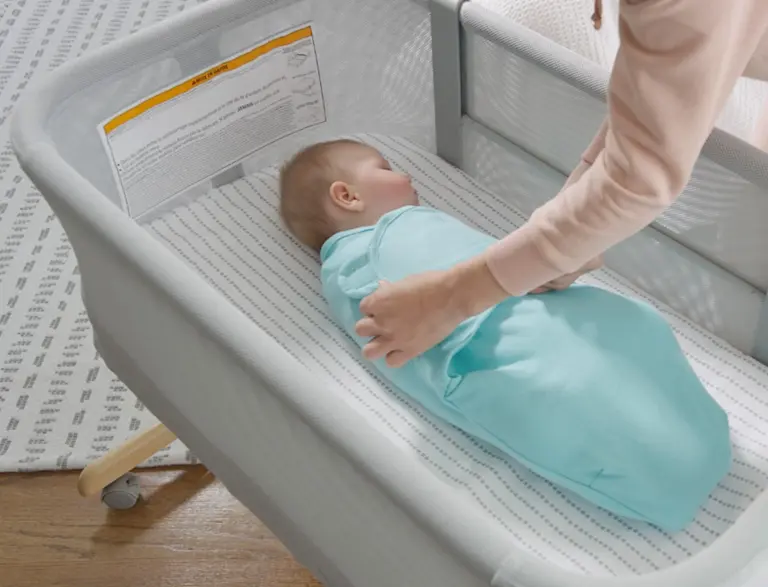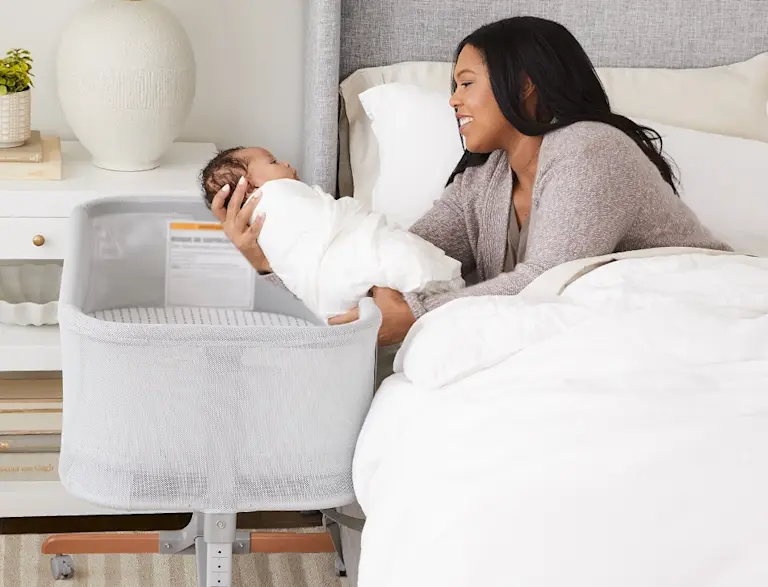
By Natalie Willes, Founder of Baby Sleep Trainer
Growing up I dreamed of having a million different jobs including being a pediatrician, a marine biologist, or a famous singer. Infant and toddler sleep coach? Never crossed my mind, but 10 years after having launched Baby Sleep Trainer, I can happily say I’ve had the great fortune of turning a hobby I was passionate about into a small company that’s helped thousands of families around the world get their babies to sleep through the night and take healthy naps.
Combining my professional experience with my personal experience of birthing and raising two kids, I uniquely understand the variety of experiences parents go through when welcoming babies into their families. When I gave birth to my first child, I was so convinced that preparation was all that was necessary for an “easy” experience with a newborn that I bought every item on the Newborn Checklist I’d found online…5 months before the baby was born. I don’t have to tell you that it takes more than just great gear to make the newborn experience easier on parents and baby.
Thankfully, the explosion of internet resources for families means it’s easier than ever to learn what babies and families truly need to ease the transition of bringing home baby. And, since sleep is top of every parent’s mind, I’m going to share some tips to help parents and baby get as much sleep as possible in those first few months of life.
The Right Gear Can Make ALL the Difference
You may be surprised to learn that newborns actually don’t need all that much in the first few weeks of life, however, a bedside sleeper is an invaluable product for virtually every family. The Skip Hop Cozy-Up 2-in-1 Bedside Sleeper & Bassinet can make overnight feeds easier on parents and baby because its sliding door makes slipping back into their secure bassinet easy and fast, negating the need to walk across the room to place baby back in their crib. Also, the Bedside Sleeper & Bassinet means parents are less likely to take a risk and co-sleep unsafely with baby in their bed. With pivoting and locking caster wheels, the bassinet easily moves from room to room, so parents can keep an eye on their napping baby no matter where they are. With the Skip Hop Cozy-Up 2-in-1 Bedside Sleeper and Bassinet, parents can rest assured baby has a safe place to sleep at home, any time day or night.


You SHOULD Wake A Sleeping Baby
There’s not a person on earth who hasn’t heard the term, “Never wake a sleeping baby.” Like all sorts of old sayings, no one knows its origins and most people just assume it’s true. But I’m here to tell you, you absolutely want to wake a newborn who’s been napping for 2 hours! Starting with whatever time you begin your day (and with a newborn, that can be anywhere from 7 a.m. to 10 a.m. or later), until 12 hours later, only allow baby to nap up to 2 hours at a time. After waking baby up completely, feed her, and aim for another nap to start anywhere from 40-75 minutes later, depending on when your baby gives tired signs. If a newborn gets a 3, 4 or 5 hours stretch of sleep during the daytime hours, it’s very unlikely they (and you) will be getting a similar stretch overnight. Limiting single stretches of daytime sleep helps encourage baby to have longer stretches of sleep overnight.

Make Sure Those Overnight Diaper Changes are Really Necessary
Did you know it’s not usually necessary to change baby frequently overnight? Short of a having a diaper rash, most newborns can happily stay in their diaper from whenever you consider they go “down for the night” until the morning. For some babies, that’s up to 10-12 hours (with feeds throughout that time). As long as baby has not soiled their diaper or leaked, and as long as there is no diaper rash present, try going up one size from baby’s daytime diaper for their overnight sleep and avoid all nighttime changes. Adding some diaper cream can help, too. That way baby isn’t exposed to cold air during nighttime diaper changes, causing them to wake completely and potentially making it harder for them to go back to sleep. If you do need to do a diaper change, try to take care of it before baby is fed, as the feeding will help them get calm and drowsy and drift back to sleep more easily.